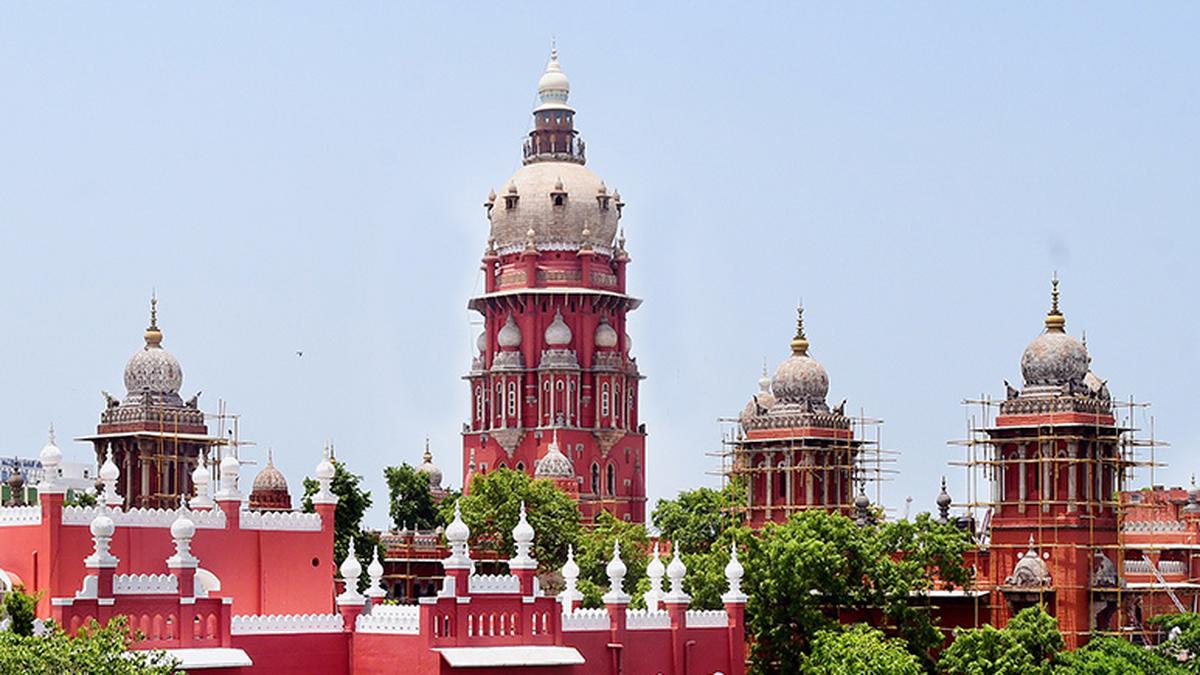
Madras High Court refuses to stay single judge’s verdict on caste having no role to play in appointment of temple priests
The Hindu
The Madras High Court on Friday refused to stay the operation of a single judge’s June 26 verdict that said pedigree based on caste would have no role to play in the appointment of Archakas (temple priests) and that any person properly trained to perform pujas and other rituals as per the Agama Sastra could be appointed to the post.
The Madras High Court on Friday refused to stay the operation of a single judge’s June 26 verdict that said pedigree based on caste would have no role to play in the appointment of Archakas (temple priests) and that any person properly trained to perform pujas and other rituals as per the Agama Sastra could be appointed to the post.
Chief Justice S.V. Gangapurwala and Justice P.D. Audikesavalu asked Advocate General R. Shunmugasundaram and Special Government Pleader N.R.R. Arun Natarajan to take notice on behalf of the T.N. Hindu Religious and Charitable Endowments (HR&CE) Department, and adjourned the hearing on the writ appeal to September 22.
Though a specific request was made on behalf of the appellant, Muthu Subramania Gurukkal of Salem, for interim orders, the judges refused to pass any such orders without granting an opportunity to the other side to file its reply. The verdict under challenge in the writ appeal was passed by Justice N. Anand Venkatesh.
Assailing the verdict, the appellant said, it was “ex-facie erroneous, unsustainable in law and liable to be reversed. The learned judge erred in traversing beyond the scope of the writ petition and in the process, issuing general directions contrary to the law laid down by the Supreme Court in Seshammal’s case (1972).”
The appellant also claimed that the single judge had “totally misconstrued” the decisions rendered by the Supreme Court in His Holiness Srimad Perarulala Ethiraja Ramanuja Jeeyar Swami versus State of Tamil Nadu (1972) and Adi Saiva Sivachariyargal Nala Sangam versus Government of Tamil Nadu (2016) while relying upon them to substantiate his conclusion.
“The learned judge having noted the facts that the temple in question (Sri Sugavaneswarar Swamy Temple in Salem) is governed by the Karana Agama and appointment of Archakas should be governed by the prescriptions of that Agama, eventually erred in holding that pedigree based on caste will have no role to play,” the grounds of the appeal read.
The appellant claimed the Karana Agama, as well as the other 27 Saiva Agamas clearly prescribe that only persons belonging to the denomination of Adi Saivars/Sivachariyars/Gurukkals are eligible to become Archakas in temples governed by the 28 Saiva Agamas and this custom was upheld by the Supreme Court in Seshammal’s case.

West Bengal government and Centre are not keen for resumption of MGNREGA, despite Calcuttal HC order
Calcutta High Court orders resumption of MGNREGA in West Bengal, but state and Centre show reluctance, impacting workers.





















 Run 3 Space | Play Space Running Game
Run 3 Space | Play Space Running Game Traffic Jam 3D | Online Racing Game
Traffic Jam 3D | Online Racing Game Duck Hunt | Play Old Classic Game
Duck Hunt | Play Old Classic Game










